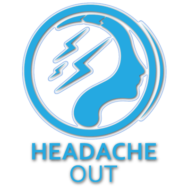Migraine is the third most frequent pathology in the world. Such intense headaches are accompanied by many other symptoms that can temporarily incapacitate the patient who suffers from it. But what is migraine? Here are 15 migraine facts you should know if you suffer from it.

Migraine: 15 things you should know if you suffer from it
The most common is that it is adults in middle age who suffer from migraine, but also children under 10 years of age or adults over 60 could suffer from it.
Different investigations ensure that the number of women who suffer from this pathology triples that of men. In this way, the female brain would respond with a greater sense of alarm to the factors that trigger migraine.
Menstrual cycles also affect when it comes to producing headaches. Menstrual migraine occurs 2 or 3 days before the start of the period or 2 or 3 days after. This type of headache is related to the decrease in estrogen levels, which causes 60% of women to suffer from it.
Migraines could also be caused by certain imbalances in the liver or in neurotransmitters such as serotonin and dopamine.
Stress is not considered a direct cause of migraine, but it can cause it to trigger.
Some of the patients who suffer from migraines could have derived complications such as pain chronification, according to which the pain becomes more common.
Beyond the headache, migraine can cause other symptoms such as nausea, vomiting or dizziness, making it even more disabling for the sufferer. Also, patients tend to be more sensitive to bright lights and sounds. Some people also suffer from body numbness or difficulty pronouncing some words.
Migraines can last between 4 and 72 hours.
To ease the pain of a migraine, find a quiet, dark room. If you are going to take any type of medication, ask a professional which treatment will work best for you.
Diet can also help you relieve a headache. With an adequate diet, DAO deficiency can be reduced, since one of its symptoms can be migraine. Fresh products, legumes, rice, potatoes, oil, meat or unprocessed fish are appropriate foods to reduce this deficit.
Daith piercing or inner ear cartilage piercing can help you deal with migraines. This is a new type of auricular acupuncture or reflexology-related treatment that stimulates different points on the body to reduce pain.
According to the Colombian Association of Neurology, taking analgesics frequently can help the headache associated with migraine to occur more frequently and, therefore, a higher dose is required to alleviate it. This could generate dependence on these substances.
If the migraine pain is persistent and it is suspected that there could be a hidden disease, it will be necessary to do a tomography or a brain MRI.
Uncomplicated migraines can be treated by a general practitioner, family practice practitioner, internist, or gynecologist. If there is no improvement, a visit to a specialist in neurology will have to be considered.
If the migraine does not go away or you cannot control the pain, go to the emergency department to rule out another illness and if you suffer from a high and persistent fever during an episode, do not hesitate to seek professional medical advice.
